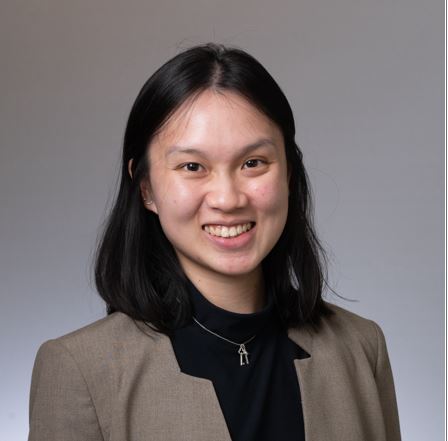
Nina Ye
Doctoral Student
Nina Ye is a doctoral student in the Applied Human Development program at Boston University Wheelock College of Education & Human Development. She studies how children effectively learn and transmit information, with a focus on the ways in which children’s reasoning about others shapes their learning and teaching behaviors. This interest extends to how children perceive and understand others’ concealed intentions and how they determine others’ trustworthiness.
Nina’s work has been published in the Journal of Cognition and Development and the Journal of Experimental Child Psychology. She has also presented her research at the Budapest CEU Conference on Cognitive Development, the Society for Research in Child Development Biennial Meeting, and the Cognitive Development Society Meeting.
Education
MSocSc, Psychology, National University of Singapore
BSocSc (Hons), Psychology, National University of Singapore
Selected Publications
Ye, N. N. & Ding, X. P. (2024). Children infer intentions by assessing epistemic attitudes in interpersonal interactions. Journal of Cognition and Development, 1-26, https://doi.org/10.1080/15248372.2024.2430193
Tay, C., Ng, R., Ye, N. N., & Ding, X. P. (2024). Detecting lies through others’ lies: Children use perceptual access cues to evaluate listeners’ beliefs about informants’ deception. Journal of Experimental Child Psychology, 241, 105863. https://doi.org/10.1016/j.jecp.2024.105863
Ye, N. N., Heyman, G. D., & Ding, X. P. (2021). Linking young children’s teaching to their reasoning of mental states: Evidence from Singapore. Journal of Experimental Child Psychology, 209, 105175. https://doi.org/10.1016/j.jecp.2021.105175
Selected Presentations
Ye, N. N. (2024, March). How do children learn about different entities? Flash talk presented at the biennial meeting of the Cognitive Development Society pre-conference workshop, “Building a Global Research Collaborative: Experiences and Findings from the Developing Belief Network."
Ye, N. N., Williams, A. J., Suárez, S., & Corriveau, K. H. (2024, March). "Because she knows more": Young children’s preferences for teachers’ explanations differ based on question type. Poster presented at the biennial meeting of the Cognitive Development Society.
Ye, N. N., & Ding, X. P. (2023, March). Preschool children use mentalizing inferences in the process of selective trust. Symposium presentation at Society for Research in Child Development (SRCD) Biennial Meeting.
Ye, N. N., & Ding, X. P. (2022, January). Children can infer deceptive intent from indirect information. Poster at Budapest CEU Conference on Cognitive Development (BCCCD), online.
Ye, N. N., Heyman, G. D., & Ding, X. P. (2021, January). Linking young children’s teaching to their reasoning of mental states: Evidence from Singapore. Poster at Budapest CEU Conference on Cognitive Development (BCCCD), online.